Today, the West's approach, characterized by double standards and personal interests towards political and social events happening in different parts of the world, stands increasingly apparent, contrasting with the values and principles it claims to uphold.
The uneven approach towards the South Caucasus countries has long run the risk of becoming a source of division; currently, however, Western politicians, including their political centers, ignore corruption scandals that occur in countries that exhibit a pro-Western political trajectory or refuse to discuss them.
Armenia is currently one of the countries where this kind of corruption is continuously growing.
Journalistic investigations, recognized as the main center of fact-checking in the liberal world, have uncovered the financial machinations of the ruling party in 'democratic' Armenia.
No reactions or objections to the revealed facts have been noted, despite the fact that the data was made public ahead of the high-level EU-US-Armenia joint summit that was scheduled to take place in Brussels in April to support Armenia's stability.
Aiming to diversify its traditional foreign policy and security architecture, Armenia has strengthened its political, diplomatic, and security ties with the US and the EU in recent years.
Western states tend to ignore certain of Armenia's activities as a result of this tendency and are reluctant to discuss it.
The communiqué presented by the media regarding the trilateral meeting held on April 5 of this year in Brussels between the Prime Minister of Armenia, Nikol Pashinyan, the President of the European Commission, Ursula von der Leyen, and the US Secretary of State, Antony Blinken, listed 'achievements' of Yerevan in the field of corruption alongside the discussed topics.
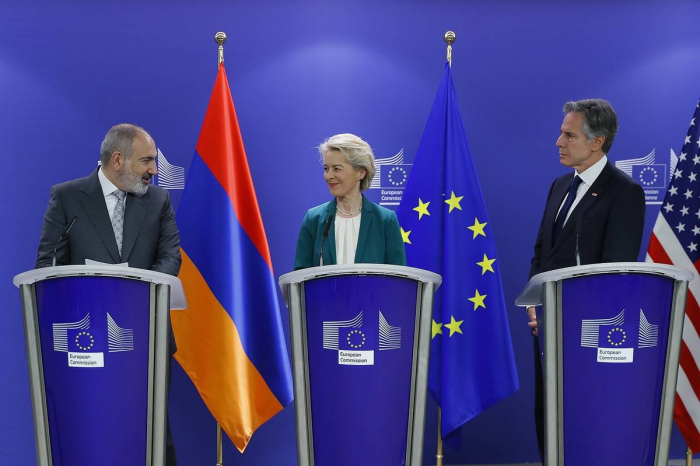
"The European Union and the United States acknowledged the substantial progress Armenia has made since 2018 on democratic and justice reforms and the fight against corruption and expressed a commitment to continue partnering with and supporting Armenia as it further strengthens its democracy and the rule of law, in line with our shared values and principles," said the communiqué.
"We welcome Armenia's endeavors towards promoting democracy, combating corruption, and fortifying the rule of law," stated EU High Representative and Vice President Josep Borrell on the sidelines of the trilateral meeting.
Armenia's pro-Western foreign policy trajectory thus makes it possible for corruption scandals to remain unreported; yet, the illicit activities discovered as a consequence of the investigations below validate the dishonesty of statements made by other senior Brussels officials, including Borrell.
Financial machinations of the Armenian ruling party Civil Contract
In March of this year, OCCRP and its local partner in Armenia published an investigation related to the source of donations received by Armenia's ruling party.
Meanwhile, funded by globalist and liberal circles, OCCRP holds the status of an international non-governmental organization in the world and is 'used' as a tool of political influence against some countries.
For the first time since the establishment of the 'democratic' regime in Armenia, information about corruption in the country is being published in global media.
More over a third of the budget for the ruling Civil Contract party in Armenia in 2022 came from donations totaling 170 million drams, or almost $420,000. Serious concerns over the party's finance did, however, surface as a result of the examination of the official financial reports.
During discussions with investigative journalists and officially registered individuals who made donations to the Civil Contract party, it became apparent that a number of them were either unaware of this kind of financial exchange or had forgotten the event.
When asked for explanation during the investigation, half of the 31 donors said they had never made a donation of this kind.
For instance, during interviews with media, Lilit Haroyan, a member of the Charentsavan Village Council in the Kotayk area of Armenia who was listed as a donor to her party in the released list, referred to the occurrence as a joke and stated that she was only now learning about it.
However, the official document indicated that she provided financial assistance of one million drams (about $2,500) to the budget of the Civil Contract party, although she claimed to have had no income that year.
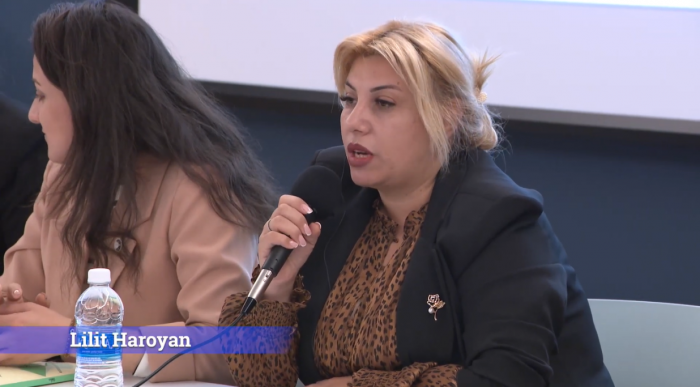
Another representative contacted by journalists, Serob Avetisyan, a member of the city council mentioned in the financial report of the Civil Contract party, reacted emotionally to the question and tried to evade it.
"If you are really journalists, then I have no time to talk to you," Avetisyan said.
Subsequently, in the conversation with media representatives, Avetisyan declared that he had given the party no funds.
In the published financial reports, dubious financial transactions conducted by the Civil Contract party are not limited to only members of the party's municipal councils.
For example, official documents noted that Sisak Shahbazyan, who worked as a driver in the administration of the Avan district of Yerevan, made four transfers to the party totaling 1.7 million drams ($4,200) from August to November 2022.
In response to inquiries from reporters, Shahbazyan said that party members requested that he transfer this sum of money; the money did not belong to him.
"I moved the money that close friends provided me. We gave the party money so they could cover their rent," he remarked.
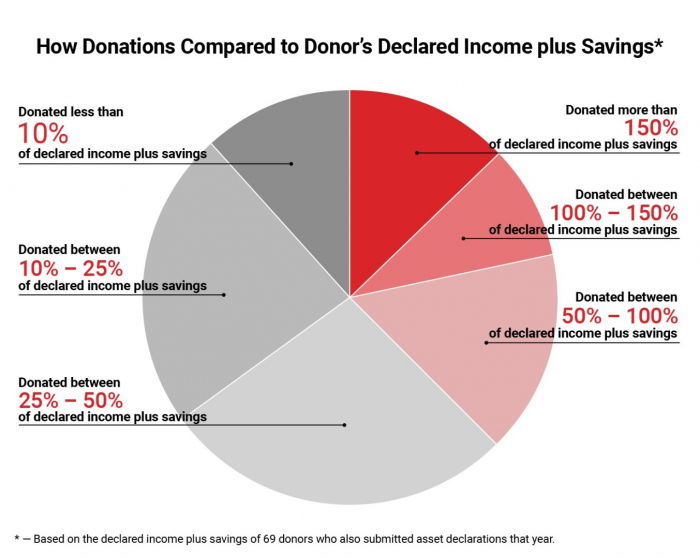
There have also been dubious financial dealings with Melina Sukiasyan, an Armenian city council member from Tashir. Accordingly, Sukiasyan made two donations in October and November 2022 totaling three million drams, or roughly $7,500, according to the financial report.
"I don't have that kind of money; I couldn't make such a donation. I no longer trust them (the Civil Contract party). If you have such documents, send them to me. I won't allow my name to be slandered," she said in response to questions about the donations.
The Armenian government claims that in recent years, it has taken steps to combat corruption to prevent the influence on the socio-political situation of the former oligarchic elite that ruled the country. The ban on cash and transfers from legal entities within the 'reforms', as well as the ruling party's conduct of dubious financial transactions after limiting the financial support from individuals, indicate different motives.
"In order to obtain the necessary funds, political parties are most likely seeking ways to circumvent the law and use illegal schemes," said the Executive Director of the anti-corruption center Transparency International in Armenia, Sonа Ayvazyan.
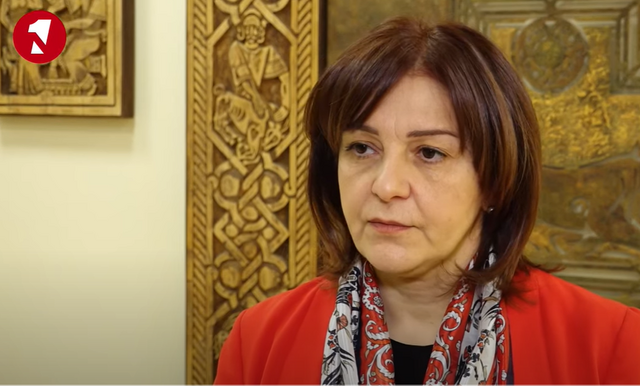
The illegal methods used to finance Armenia's ruling party, Civil Contract, and the involvement of ordinary citizens, whose names are listed above, in such dirty political games have become entrenched.
Despite the fact that the Armenian government, in contrast to the previous authoritarian one, identifies as democratic and asserts that it is a body chosen by the people, its corrupt practices have only taken on a different guise.
Coordinator for Democracy at the Helsinki Citizens' Assembly-Vanadzor (HCA-Vanadzor) Vardan Grigoryan said that the nature of the donations indicates an attempt to conceal the source of funds for the party.
He noted that the money could have been obtained in cash from various sources and then transferred to the party on behalf of their candidates.
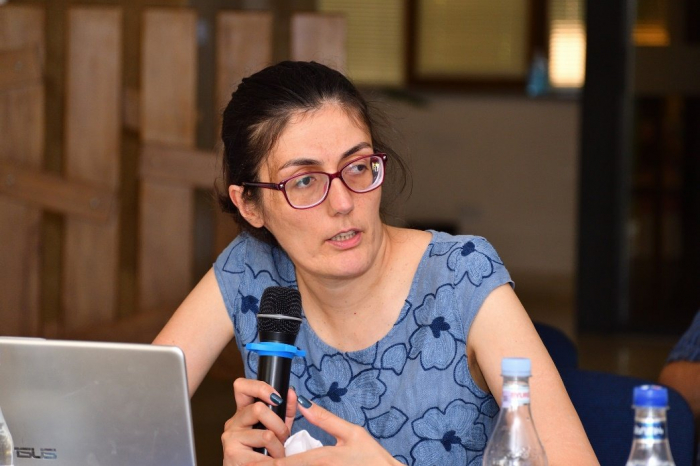
Questions arise:
What funds is utilized by the Nikol Pashinyan-led ruling political party for its philanthropic endeavors?
Where is the source of the money that has been illegally 'imported' into the party budget under the identities of the ordinary party members mentioned earlier?
Could this be a way to 'clean' the dirty money of the former political elite, who amassed wealth by stealing from the Armenian people over the years?
Additionally, in favor of Pashinyan's government
Nevertheless, the indisputable evidence points to the populism behind the claims made by Armenia's so-called democratic government regarding its efforts to combat corruption.
Western officials and politicians disregard the opinions expressed on corruption in Armenia by non-governmental groups like Transparency International and the Helsinki Citizens' Assembly, as well as by the OCCRP, which is supported by by global donors.
End of Part One.
To be continued, the next part will provide information about other corruption scandals involving the ruling party in Armenia and the bank involved in this process...
AzVision.az
More about:
















































